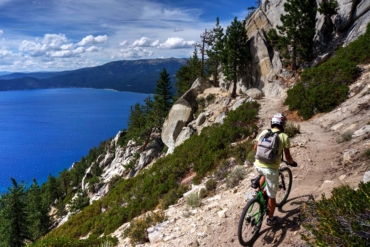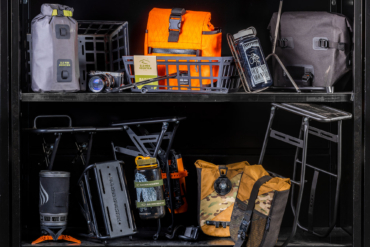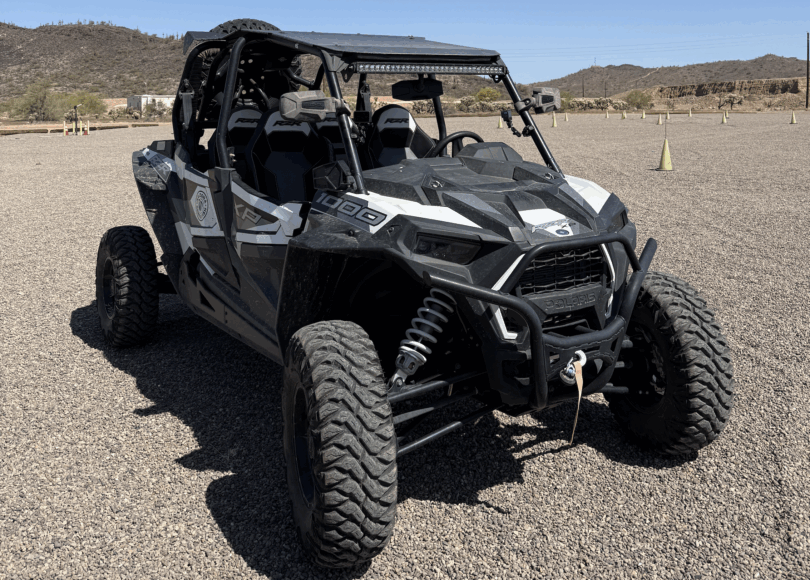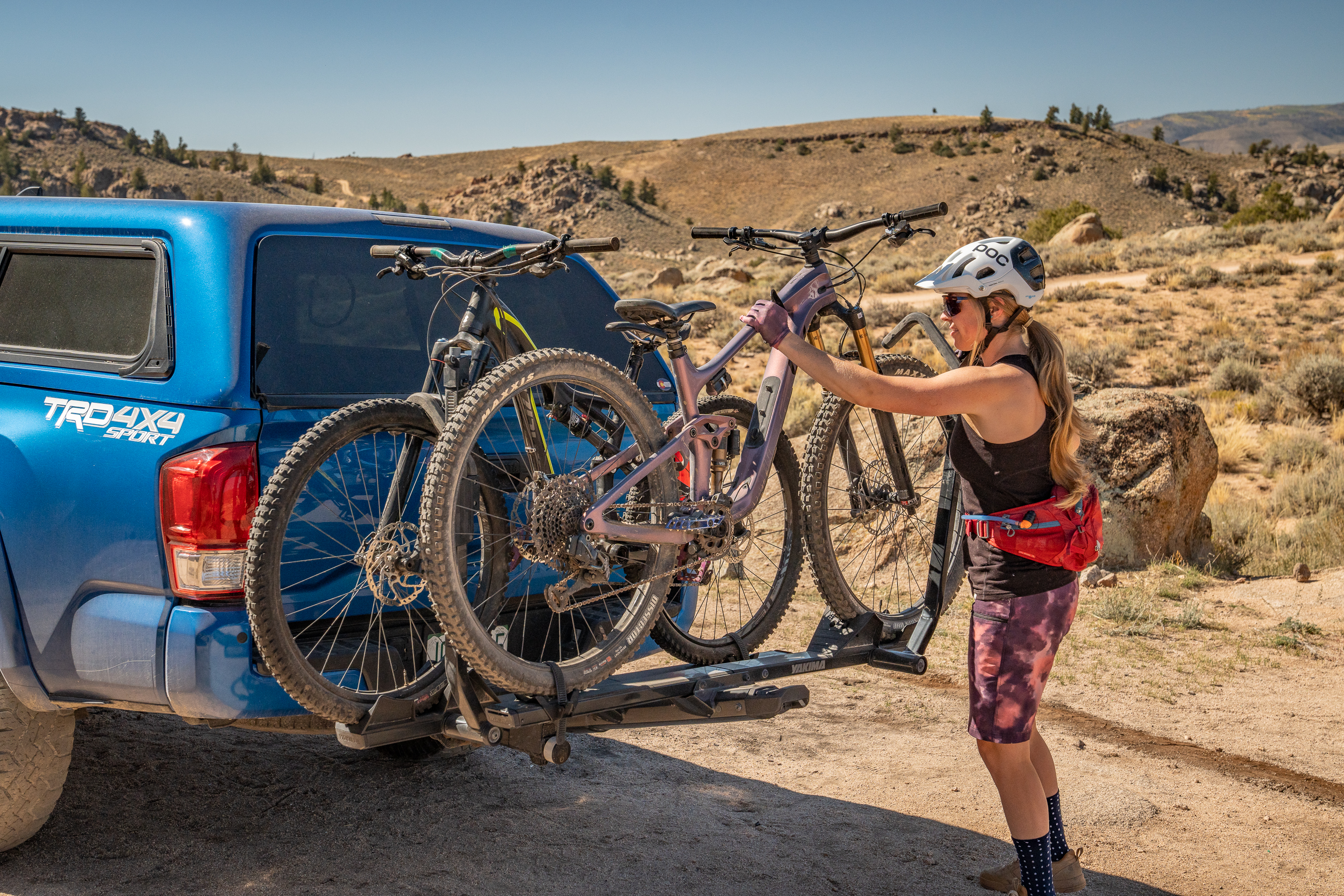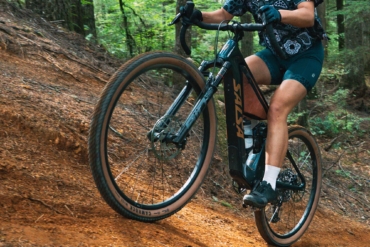Specialized has seven “Rockhopper” models in its 2011 catalog, from a $450 entry-level mountain bike to the top-of-(this)-line Rockhopper LTD 29er, an $1,800 build. The Rockhopper brand has been around for years and it’s become synonymous with good, though not competition-ready, bikes that can take on all kinds of terrain.
Last fall, the “non-competition” image received a dent when Ned Overend, a champion veteran mountain biker, threw a leg over a Rockhopper frame at the U.S. Mountain Bike National Championships. His Rockhopper bike, built on the Rockhopper SL SS frameset, was a single-speed, and thus Ned raced in the U.S. National Singlespeed Championship event — and he won!
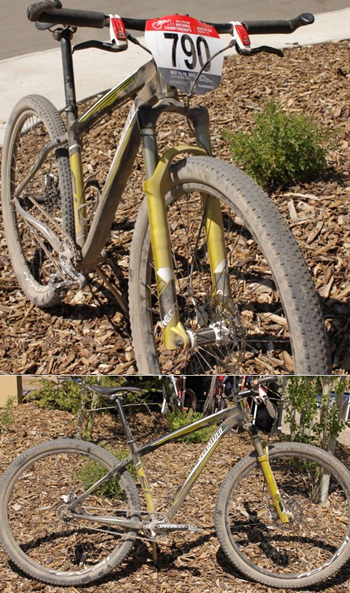
The bike world was a bit shocked. The single-speed champs event attracted some of the world’s top riders, and it was won by a 55-year-old man on a $450 frameset. Wrote BikeRadar in a story about the race, “Overend won his latest national title on a bike from Specialized’s recreational cross-country line, which is just a step or two up from the company’s base models.”
The lesson here? Sure, Overend had top-end components on his “basic” Rockhopper frame. But the point is that technology and design has trickled down from high-end bikes and race models. Companies like Specialized are now able to build mid- or even entry-level bikes that can stand up in competition settings and on the toughest trails.
This past summer, we got a geared version of Ned’s Rockhopper bike to test out. The Rockhopper LTD 29er has a lightweight, fully-butted alloy frame, and a 10-speed Deore XT rear derailleur. Its 29-inch, tubeless-ready DT rims are shod with house-brand Captain Control tires. An 80mm RockShox Recon Gold fork and Avid Juicy 3 SL hydraulic disc brakes round out the notable components.
Our crew at GearJunkie rode the LTD on singletrack for two months this summer in a test. Is the frame as good as Ned made it look? Well, though a cross-country race is not what the bike was designed for, it does move down the trail pretty well, especially when things get bumpy.
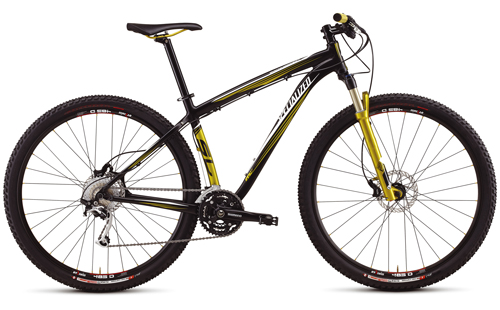
In our test, we noted that the Rockhopper’s relaxed geometry was more at home on varied terrain than a pure singletrack rig usually is, and that the bike inspired confidence because of it. For beginning or intermediate riders, the Rockhopper build is great — it is easier to ride and more forgiving than Specialized’s higher-end Stumpjumper line. The flip side is that the Rockhopper is slower and a little less confident in high speed corners with its relaxed stance.
Our stock bike, which has an 18-inch frame, weighed 29 pounds. A bit heavy for sure, but it did not ride like a pig. “It felt like a 27-pound bike,” wrote in one of our testers, who apparently has a preternatural sense for bike weight.
Another tester, an intermediate mountain biker, wrote the Rockhopper was “fast and easy to handle” on singletrack. He said for heavy recreational trail riding it was spec’d well enough to manage some abuse.
The Rockhopper LTD ships with Shimano SLX and XT components. One thing we loved, Specialized includes a fork remote lockout feature that allows you to lock (disengage the dampening) or unlock the fork with the flip of a bar-mounted lever. A locked-out fork will promote better climbing, and an engaged fork will smooth bumpy trails and give control on descents. Most all forks feature some sort of lockout, but the remote is often an add-on option. In this case, we think it’s a great feature on the Rockhopper stock.
For its price tag of $1,800, the Rockhopper LTD 29er is a solid option for first-time racers or recreational riders looking to pound. Weekend trail warriors on a budget would be wise to consider the bike. Plan on taking it to the Mountain Bike National Championships? Maybe talk to Ned Overend and his mechanic before you do that.
—Stephen Regenold is founder and editor of www.gearjunkie.com. John Peacock and T.C. Worley contributed to this review.

